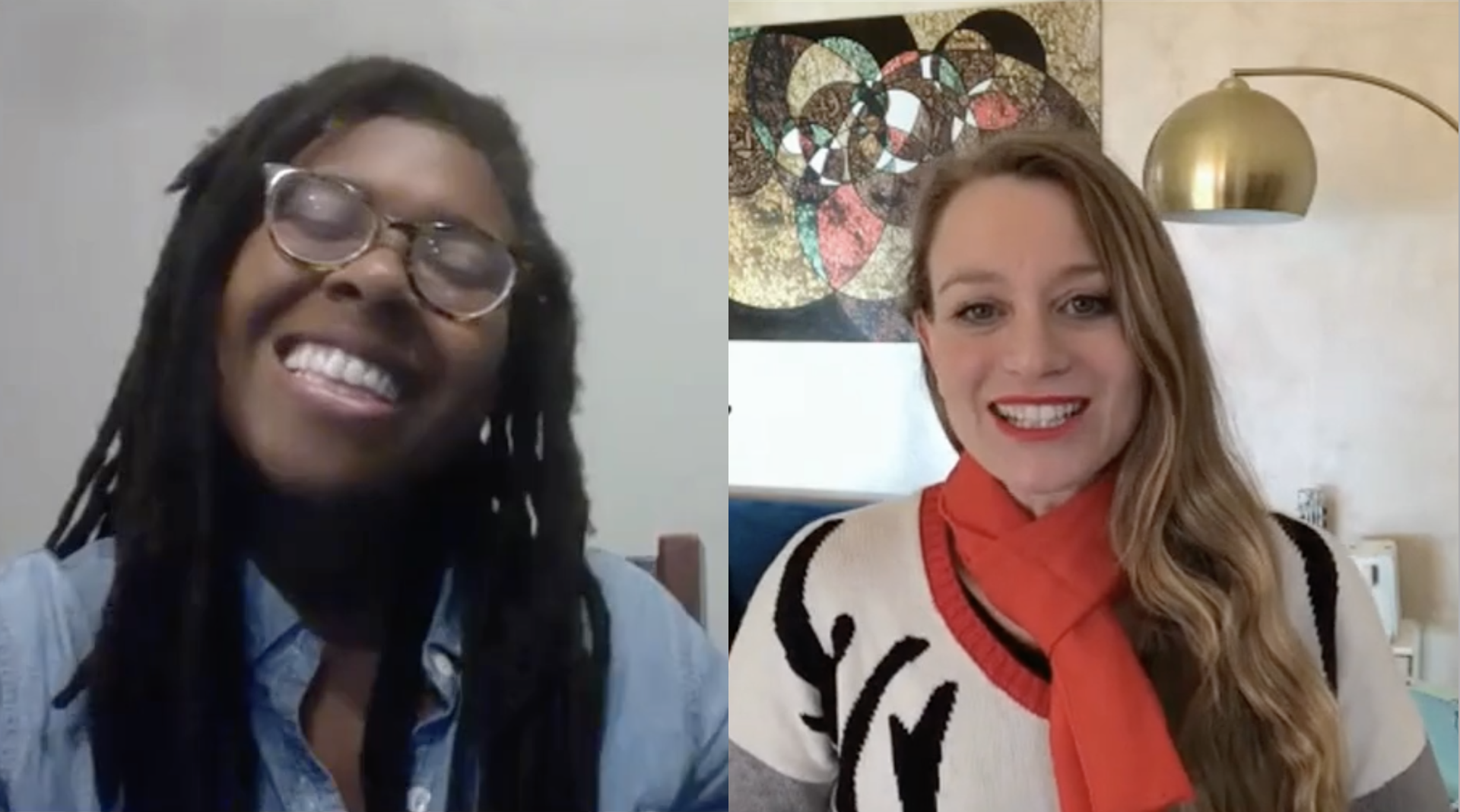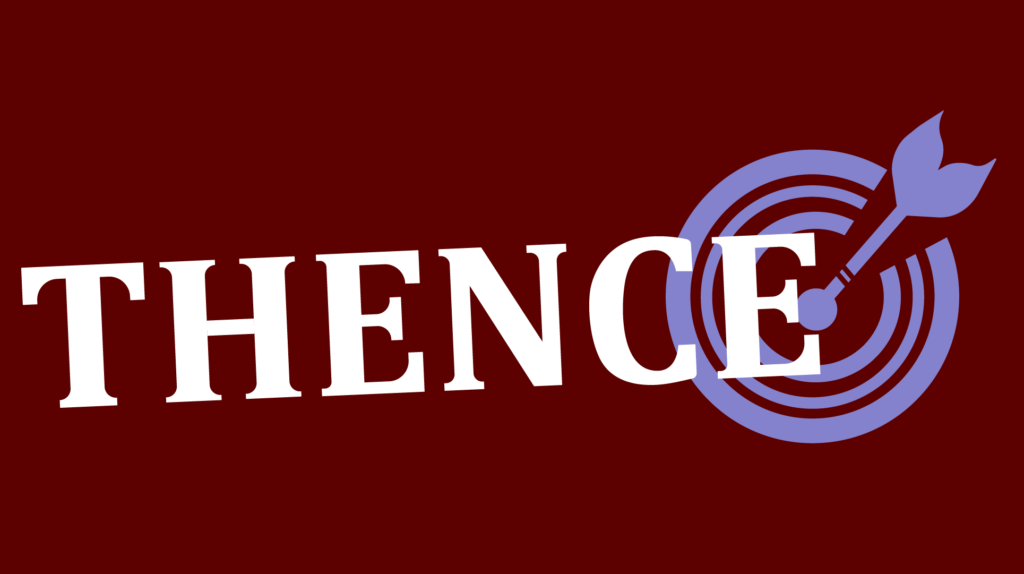Hi, I am Dr. Katherine M. Schlatter, founder and health education specialist at THENCE. Below you will find our four part interactive video interview with Ms. Ashley Causey-Golden, a major contributor at THENCE. Ms. Causey-Golden is the creator of Afrocentric Montessori and the co-founder of Gather Forest School in Atlanta, Georgia. Here Ms. Causey-Golden speaks about how she began to create stress-free “classroom” calendars that educate and honor important holidays, remembrance days, and special events, without overwhelming teachers, parents and students with extra work, responsibilities and stress. We put “classroom” in quotation marks here because Ms. Causey-Golden’s calendar ideas, tools and practices can be used beyond the classroom, and can inform an approach for homeschool families, paediatric practices, wards in hospitals, youth and community centers. Ms Causey-Golden’s Forest school and classrooms in Atalanta, GA have no walls, so highlighting special events and holidays involves creativity beyond decorating or pinning up a poster. Please scroll down and enjoy this four part interactive video interview Classroom Calendars with Ashley. Scroll beyond the videos for the full interview transcript.
Katherine Schlatter : Today, I would like to introduce a very special THENCE contributor, entrepreneur, and school founder, educator, writer, and all around creative mom, Ashley Causey-Golden. Good morning, Ashley.
Ashley Causey-Golden: Good morning, good morning!
Katherine Schlatter : So, Ashley has been doing something very special since she founded her Forest School in Atlanta, Georgia. For each month, she creates a calendar of important and notable events, anniversaries and celebrations. As you may imagine, the month of December is chock a block with celebration. Ashley, tell us about your calendar and how you share it with the families of the children who attend your school.
Ashley Causey-Golden: Yes. So the calendars got started with my company, Afrocentric Montessori, because as a school teacher, it was hard for me to keep up with all of the celebration, notable events. That, but also finding relevant anti-racist, anti-bias information for those events. So I spent many times scrambling maybe the day before trying to find things to introduce into my classroom. So, that’s how the calendars got started. It gave me time to do a month-long look at things, find great resources written by folks of color. And then it also gave opportunity for parents to also see the calendar and use it in their homes. So, I was able to pick one or two events for my classroom. Families could have chosen five, six, seven, so however families wanted to use it. But it was just a great resource that I can use and that also families can use as well.
Katherine Schlatter :That’s wonderful. So what is the best way to involve the families in the classroom activities? Especially around honoring special holidays and anniversaries and remembrance days.
Ashley Causey-Golden: So, in my classroom, we’re big on just educating and not so much celebrating. And the reason why we educate instead of celebrate, because each tradition, each cultural heritage, has so many different nuances it is very easy to do surface level celebrations, where you’re almost like a tourist. You have a craft, you might sing a song, you do a video. The children have a lot of fun, but then the next day you hop to something else. But for folks within the culture, it’s not a the next day, things change. Sometimes these celebrations last for a month, or a week. Families have it in their… What they eat, listen to, their clothing. So it’s a much deeper cultural dive. So when we educate, we acknowledge that these holidays are coming up and then I provide resources for families to do a deeper dive if they choose to. Or if not, the children just know that there’s a world bigger than their own lived experiences.
Katherine Schlatter:It sounds like an incredible approach and a very successful one in your school. But do you think that a lot of schools kind of get it wrong sometimes? Do they do so much the sort of typical, like you say, like a craft, a song, that’s it, we’re done with it?
Ashley Causey-Golden: It’s great. I wouldn’t say it’s not a right or wrong situation. As educators, administrators, content creators, we go by our own lived experiences. And sometimes our intentions do not always align with our action, especially when we are sharing a cultural heritage or a cultural identity that we ourself do not, cannot claim, do not align with. It’s easy for us outside eyes and ears to feel like cultural appropriation is happening, or we’re not slowing our minds and bodies down to be truly present to understand the importance of this event, holiday, or… anniversary. However, those things are important to different cultures. So schools want to sometimes just cast a wide net when we think about inclusion. They’re like “We want to cover everything.” But when we truly think about inclusion, it starts with a sense of belonging.
So you can have a plethora of books, celebrate holidays, but just because you do those things does not mean that your students feel like there is a sense of belonging in the classroom. Because many times, again, students could feel like it’s a tourist holiday. We just stop by, we talk about it for one day, and then we move on. I experienced that a lot myself, being one or two of the only black students in my school when Black History Month came up. It was literally, “Okay, let’s talk about this for one or two weeks.” And then the rest of the year, there was not much talk about black achievement in the United States. So students need to feel a sense of belonging beyond the holiday, beyond the celebration.
Katherine Schlatter : I love that. So it’s about making the space that’s a continuous space and slowing things down so there’s a true availability of bandwidth to kind of absorb as well. I love that. So finally, how do celebrations relate to the health of the community and to personal health? Like for example, holidays are sometimes very stressful for families. Do you think that there’s a place for schools to help with family expectations around the holidays?
Ashley Causey-Golden: Yes, definitely. Holidays and celebrations are important across the board, because through these moments, you really can feel seen, especially for the individuals whose culture, racial or cultural identity is being talked about, their heritage is being talked about. For children, it’s a bright moment. They feel seen. For who choose to engage, to be a teacher in that sense of if they’re coming into the classroom, they also can fill this part of being seen like, okay, a moment is being taken out of curriculum or instruction to hear how my family celebrates. So there is a special moment that I think still needs to be a part of school, and whatever school looks like for you, whether you’re homeschooling or you’re in a traditional school model, that needs to be a part of the rhythm, or a part of your calendar year. Schools can support families during the holiday season, because so many things come up, right?
Ashley Causey-Golden: The stress of meeting expectations or not meeting expectations, and for school side, it would be helpful for schools to let family know how to manage expectation when it comes to education. So I’ll just do for more the education side, sharing with families what to do during the break. So my background is Montessori. I also believe in play based education. So coming up with some things that families can do during the break. Because when we think about it, the majority of our children spend more time at school than they spend at home. So there’s a lot of anxiety with families here, like, “Okay, my child’s here all day. What am I going to do with my child?” So sharing activities with families can bring some sort of calmness. Also for families who are doing a more untraditional path, so I’m talking more to my home schoolers, those who are doing Reggio, Montessori, Waldorf.
Ashley Causey-Golden: And you have more traditional parents, so loved ones or relatives, who are like, “What is your child learning?” It’s helpful for schools to create bite-sized things about what your child do during the day, or why is this educational philosophy great for children. Because that can also help ground families when grandma and grandpa, or mom or dad comes and like, “Why isn’t your child doing this? When you were this age, you were yada yada yada yada.” You can share some important tidbits if you choose or you could just say, “This is my child and this is how I’m raising my child.” But those conversations create so much anxiety and stress during the holidays, and schools can do a little bit to help support our parents.
Katherine Schlatter : As a fellow mom, I can very much relate to that. And you really hit the hammer on the nail, I guess, because these types of conversations from parents, or in-laws, or aunties, uncles, you name it, for a new mom, they can be really hard. And even sort of like now I have teenagers and tweens and there’s a lot of questions about the length of my son’s hair and why he chooses to wear his hair in a certain way. And it doesn’t end with just the beginning years. Like, “Why isn’t your child pulling themselves up?” when they’re like eight, nine months old. And it’s interesting because there’s definitely, as new moms, there’s a learning curve. And I feel like, I wish I had heard your words when I was a new mom, because that would have prepared me in so many ways. But how wonderful that at your school and in the community that you have created in your school, that you’ve created these not only bright spots, but continuous spaces and continuous, opportunities for conversations to with learning from all the members of your school community. And I really commend you on that. And I think that there’s so many educators that are going to be very interested to hear these words and to hear how you do this as a regular routine and as part of not even just the curriculum, but as part of your philosophical approach to teaching and health. We really appreciate it and these are wonderful, helpful words. And I think that many parents, educators and administrators will take these words very seriously and think toward how their school can create those similar bright spots and spaces and continuous learning opportunities. Thank you so much for joining this morning. And I really hope that we get to chat again over the holidays. And wishing you and your family the best this holiday season.
Ashley Causey-Golden: Oh, thank you so much. You too.


